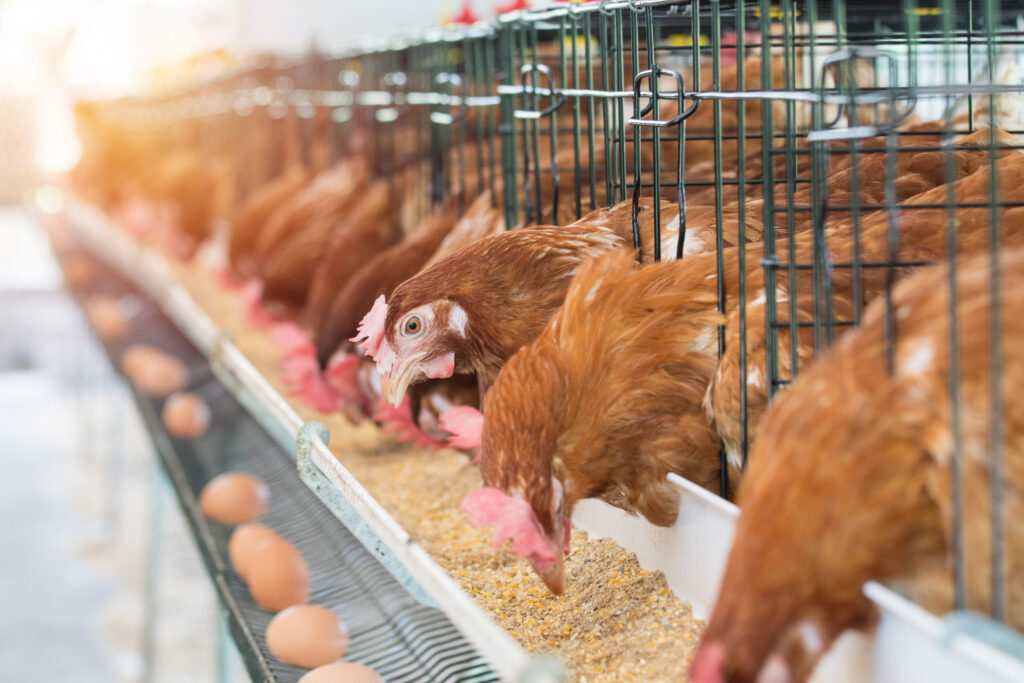With published research on such diverse topics as chronic kidney disease in cats and pain management in pigs, NC State researchers continue to produce findings that will improve both animal and human health. Here is a sample of their work.
Developing New Methods of Diagnosing Chronic Kidney Disease in Cats
Chronic kidney disease is a major health concern in cats, but it particularly affects the quality of life in older cats. Chronic kidney disease is extremely difficult to diagnose early because clinical signs and symptoms typically appear only in the later stages of the disease. Ryan Appleby, Shelly Vaden, Gabrielle Monteith and Gabriela Seiler from NC State College of Veterinary Medicine’s Departments of Clinical Sciences and Molecular Biomedical Sciences addressed the need to develop new ways to identify CKD by investigating the use of shear wave elastography, a novel ultrasound method that has shown promise in identifying CKD in people.
The full study and its results can be read in Veterinary Radiology and Ultrasound
Read it here: https://doi.org/10.1111/vru.13184
Identifying the First Case of Chronic Recurrent Multifocal Osteomyelitis in a Dog
Chronic Recurrent Multifocal Osteomyelitis is an extremely rare disease that has been seen in human children and adolescents but had never been recorded in a canine patient. That is, until an Italian greyhound was evaluated for bone pain, generalized hyperesthesia and fever, with all clinical, imaging and histopathologic findings pointing toward CRMO as the cause. A new case report from NC State’s Daniel Duffy and Allison Kendall, in collaboration with Purdue University, evaluated the symptoms, testing and treatment of the dog, which is thought to be the first canine case of CRMO identified and reported in veterinary literature. Throughout the report, the authors assert that CRMO should be considered a potential diagnosis for dogs with signs of bone pain, with or without fever, and that after this case it is necessary to research treatments for CRMO in dogs to be prepared if further cases occur.
The case report can be found in Corpus Journal of Dairy and Veterinary Science.
Read it here: https://www.corpuspublishers.com/assets/articles/cjdvs-v3-22-1045.pdf

Comparing Methods of Diagnosing Bacterial Pneumonia in Horses
Thoracic ultrasonography is commonly used for diagnosing bacterial pneumonia in horses because it is easy to use, portable and non-invasive. Thoracic radiography is another standard practice, but no one has ever compared each method’s accuracy in diagnosing bacterial pneumonia in adult horses. In a recent study, NC State researchers Kath Hepworth-Warren, Nathan Nelson, Katarzyna Dembek and Kimberly Young developed a novel scoring system for ultrasonography in adult horses and compared it with the accuracy of thoracic radiography. The results of the study validated that ultrasonography as a stand-alone imaging tool that is just as accurate for diagnosing bacterial pneumonia in horses when radiography is not a practical option.
The full study and its results can be found in Frontiers in Veterinary Science.
Find it here: https://doi.org/10.3389/fvets.2022.991634
Researching Pain Management at Commercial Swine Farms
Over the past decade, societal concern surrounding the commercial swine industry has increased, and NC State researchers are at the forefront of addressing concerns about the welfare of animals. One area researchers want to improve is the lack of pain management protocols in husbandry practices. Currently, there are no pharmaceutical products approved by the US Food and Drug Administration to alleviate pain in swine. Therefore, NC State researchers Monique Pairis-Garcia, Magdiel Lopez-Soriano and Victoria Rocha Merenda completed a study evaluating the potential of transdermal flunixin, a drug effective in mitigating pain in species such as dairy cattle and goats, in relieving swine pain by using a previously validated piglet acute pain scale with encouraging results.
This study was in collaboration with colleagues at the School of Veterinary Medicine and Animal Science of University of São Paulo in Botucatu, Brazil.
The full article and results were published in Frontiers in Pain Research
Find it here: https://doi.org/10.3389/fpain.2022.1056492
Improving the Odds For Successful Intestinal Transplants
Out of all abdominal organ transplants, intestinal transplants are performed the least. The procedure is one of the most difficult to execute, and it has a very high rejection rate in the first year after transplant. Carefully preserving the tissue graft during retrieval is critical to stave off rejection for a successful transplant. To address this issue, Elsa Ludwig, Cecilia Schaaf, Brittany Veerasammy, Amy Stewart, Caroline McKinney, John Freund and Liara Gonzalez studied normothermic machine perfusion as a method of tissue preservation. Normothermic machine perfusion has been studied in other organ transplants but had not been studied in intestinal transplants. The team, all from the Intestinal Regenerative Medicine Lab at the NC State College of Veterinary Medicine, found that normothermic machine perfusion is a feasible method for tissue preservation and transplantation of the intestine.
The study was published in Transplantation Direct.
Find it here: https://journals.lww.com/transplantationdirect/Fulltext/2022/11000/Orthotopic_Transplantation_of_the_Full_length.15.aspx

Using Common Veterinary Medication to Combat Bed Bugs in Poultry Farms
The pesky common bed bug, Cimex lectularius L., has been an unwelcome intruder on poultry farms for decades. Although there is no quantitative research on the effects of bed bug bites on poultry health, the frequent bites and blood-feeding are thought to cause stress, infections and even anemia in chickens. Currently, there are limited options to manage infestations due to the lack of products labeled for bed bug control and the resistance bed bugs have to many active ingredients found in the products. In a new study, researchers from NC State’s College of Veterinary Medicine and College of Agriculture and Life Sciences collaborated to evaluate the effects common veterinary drugs had on bed bugs by treating hosts with systemic antiparasitic drugs. The results found that systemic ectoparasitic drugs have great potential for managing bed bug infestations in poultry farms and that fluralaner is an effective active ingredient for bed bug control.
The study was published in Parasites & Vectors and co-authored by Andrea Thomson and Olivia Petritz from the Department of Clinical Sciences and Rocio Crespo from the Department of Population Health and Pathobiology.
Find it here: https://doi.org/10.1186/s13071-022-05555-6
Research Connection: Enhancing Biosecurity in the Swine Industry with Dr. Gustavo Machado
Infectious disease spread is a major threat to the swine industry, which is why NC State’s Dr. Gustavo Machado from the Department of Population Health and Pathobiology developed the Rapid Access Biosecurity App (RABapp™) in 2019. The app focuses on building interpretable models so that industries and veterinarians can make informed decisions on disease control efforts. In just three years, the app has collated biosecurity information across 10,000 swine farms nationwide, representing 34 swine companies in 22 states – with even larger goals for the future.
The RABapp™ is supported by NCSU and a range of external funding agencies, including the United States Department of Agriculture–National Institute of Food and Agriculture, the United States Department of Agriculture–Animal & Plant Health Inspection Service, Pork Checkoff, and the Foundation for Food and Agriculture Research.



